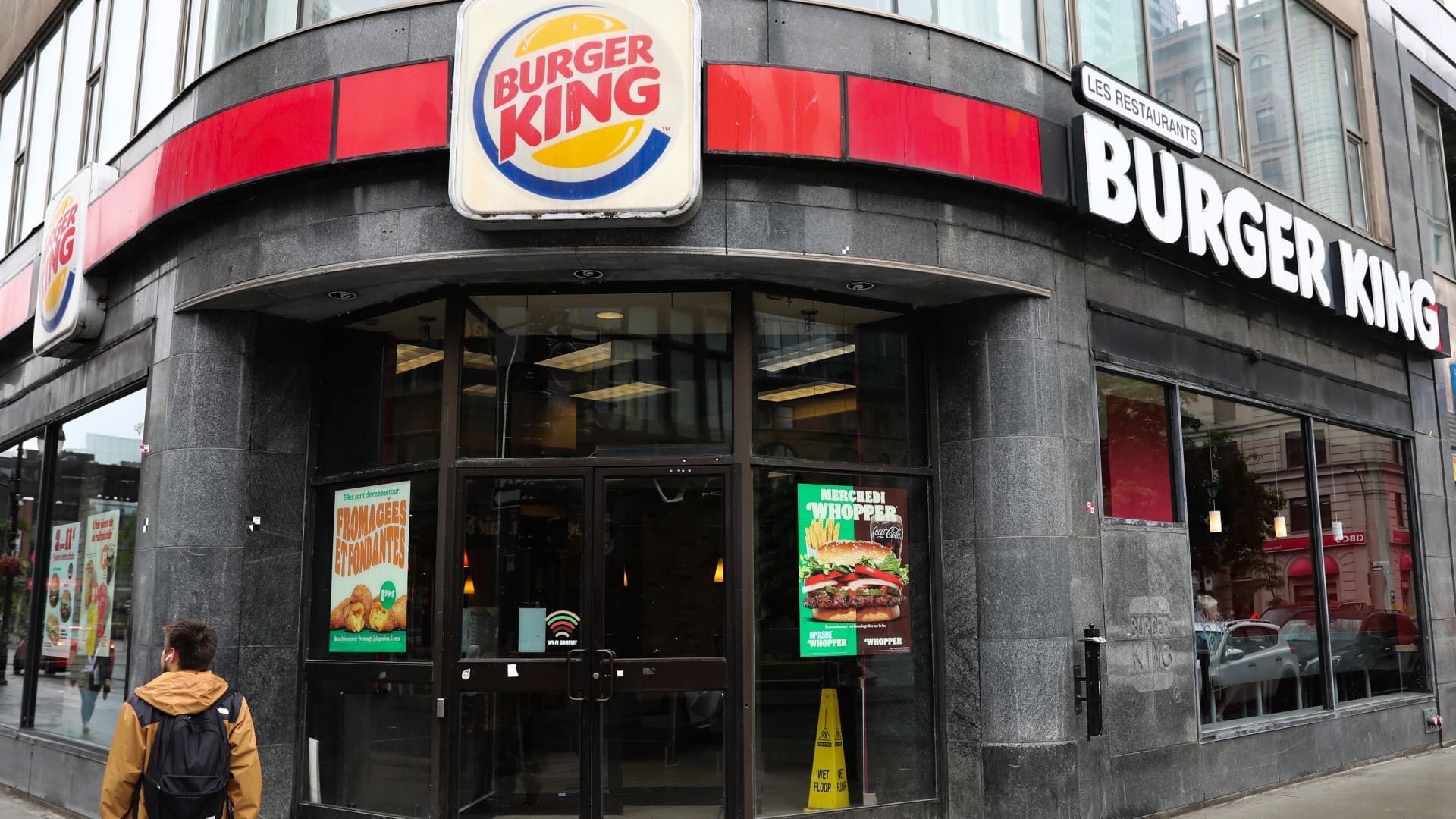Visits: 35

Burger King’s plan to revive its U.S. business is already showing signs of improved franchisee profitability, on top of stronger sales.
“We’ve moved sales back in the right direction, but we’ve already started to move franchise profitability meaningfully higher,” Josh Kobza, CEO of parent company Restaurant Brands International, told CNBC.
Restaurant Brands also owns Popeyes Louisiana Kitchen, Firehouse Subs and Canadian coffee chain Tim Hortons.
The burger chain in September unveiled the $400 million turnaround plan it crafted with franchisees after several years of disappointing sales. In 2020, Burger King slid to the No. 3 burger chain in the U.S. in terms of sales, losing ground to Wendy’s after it launched breakfast nationwide. And the gulf between Burger King and its top rival McDonald’s has only widened.
But Burger King is trying to launch a comeback, with its parent company pouring money into restaurant renovations and advertising. The chain is also taking steps to improve restaurant operations and menu offerings and doubling down on the Whopper, the longtime anchor of its menu.
In the first quarter, Burger King’s U.S. same-store sales grew 8.7%, an early sign that the strategy might be working. A year earlier, its quarterly same-store sales were roughly flat.
But the chain is also trying to make sure the turnaround is sustainable and doesn’t just boost sales for a few quarters before lagging again.
One of the longer-term aims of the turnaround is to improve franchise profitability, an important indicator of the chain’s overall success. Higher profits for operators mean they have money to reinvest back into their existing restaurants or new locations, driving more sales for the franchisor.
That’s good for the restaurant chain, too: Franchisees that struggle to stay afloat are a drag on the business and typically result in closures, in addition to lower system sales at their lagging restaurants.
So far this year, two Burger King franchisees have filed for bankruptcy. The first franchisee to file for bankruptcy, Toms King Holdings, sold most of its locations at auction for $33 million in April. Burger King is trying to push the other operator, Meridian Restaurants, to sell its restaurants, according to a report from Restaurant Business Online. Meridian has already closed more than two dozen restaurants after filing for Chapter 11 bankruptcy.
Restaurant Brands executives said in early May that they expect to close 300 to 400 underperforming locations this year, although that depends on how quickly the business can bounce back. Burger King typically closes several hundred U.S. locations every year.
“This is the seminal moment in time for us to figure out which restaurants have long-term viability,” Burger King U.S. President Tom Curtis told CNBC. “There’s a few out there that don’t, and we need to take those off our owners’ backs so they don’t have to bear the losses and can put that money back into growing their asset base and their restaurants that they do own.”
“It’s all part of the normal process,” he added. “And we’re going to be bigger, stronger and be able to grow faster in the future if we do that.”
The chain also recently changed its expansion policy for franchisees, limiting most operators to footprints of under 50 restaurants and requiring local ownership.
Investors seem relatively optimistic about the company’s future. Shares of Restaurant Brands have risen 16% this year, giving the company a market value of $23.5 billion. The S&P 500 is up 13% in the same time period.
“I think that investors appreciate the fact that RBI is coming to the table to invest money into the brand to see its resurgence,” Curtis said.

